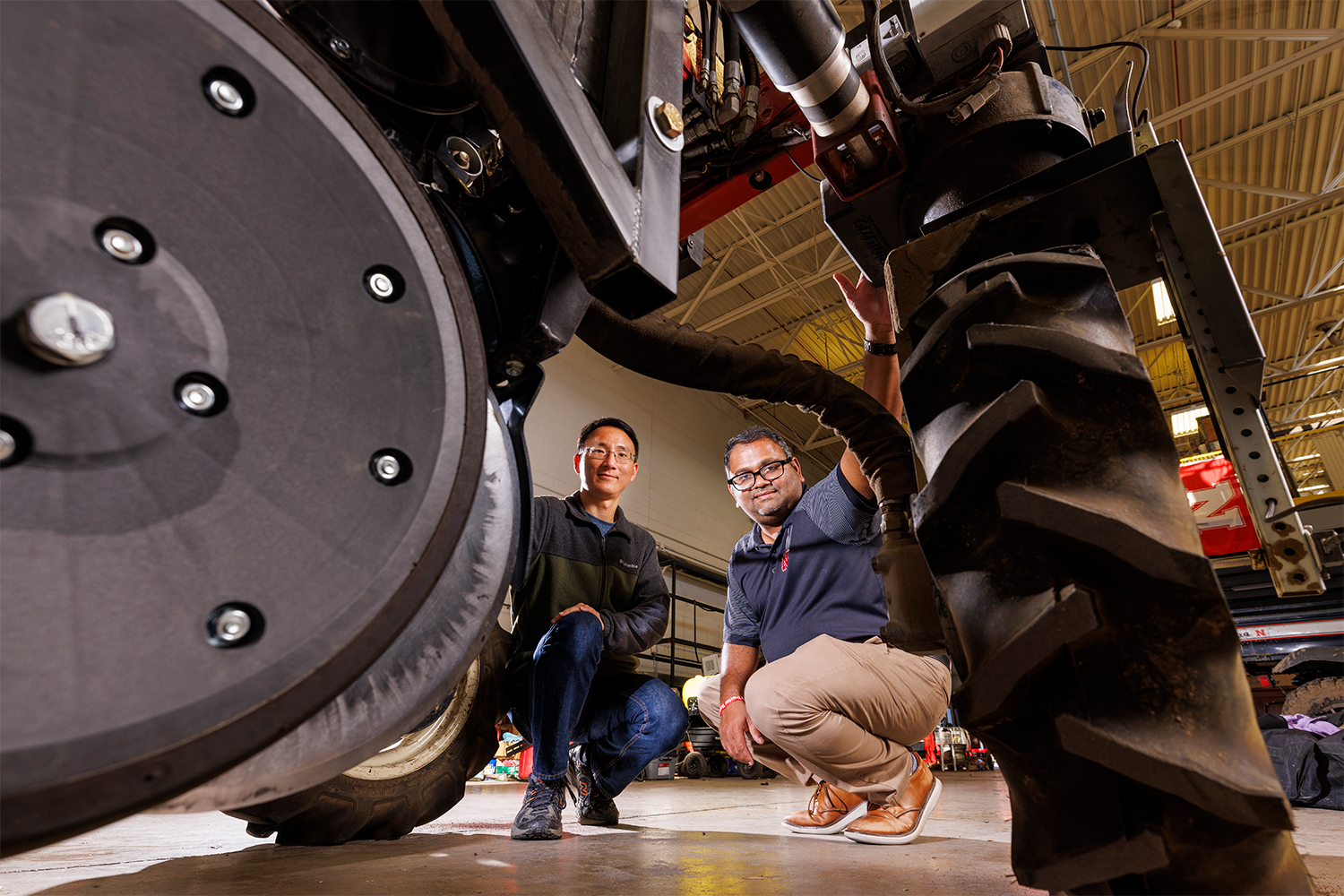Calendar Icon
Nov 06, 2023
![]() RSS
Submit a Story
RSS
Submit a Story

RELATED LINKS
As the world looks toward a future in space, a two-year Grand Challenges grant from Nebraska's Office of research and Economic Development is supporting biological systems engineering researchers Santosh Pitla, Yufung Ge and David Jones in their quest to boldly go where no one has gone before and establish the first center for space agriculture at the University of Nebraska-Lincoln.
Their long-term goal is about as grand as it gets: finding ways to sustainably grow food on space stations, the moon, Mars and other celestial bodies that might eventually sustain legions of the human kind. To do it, they formed the Consortium of Space, Policy, Agriculture, Climate and Extreme Environment — SPACE2, for short.
The consortium's short-term aim doesn't exactly lean modest, either. It may not rank with the near-vacuum of space, but Ge and Pitla would come to learn of a sizable void: No U.S. university features a center dedicated specifically to the study of space agriculture. The researchers want Nebraska to house the first.
"If NASA or the big space companies — SpaceX, Virgin Galactic, Blue Origin — want to go out and work with a university, who would that be?" Pitla said. "We have been doing ag research for more than 100 years, and we're an ag state.
"Why reinvent the wheel somewhere else when we already have all this experience?"
Submit a Story